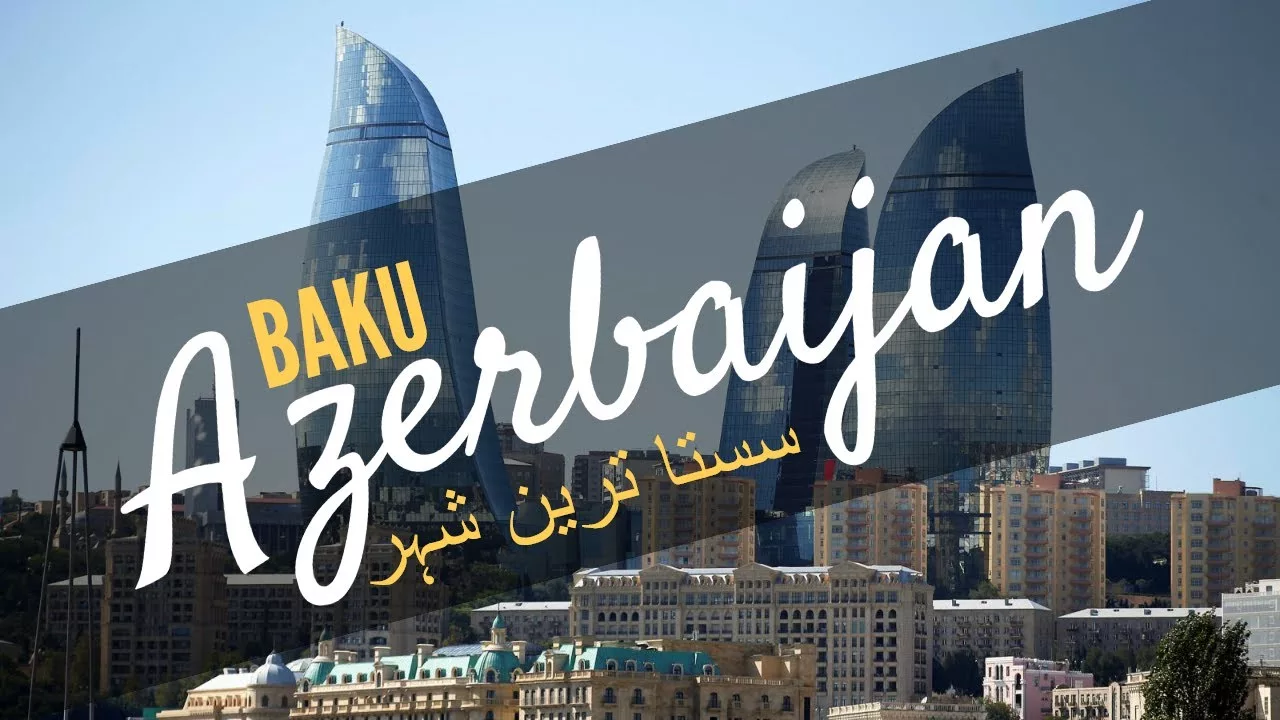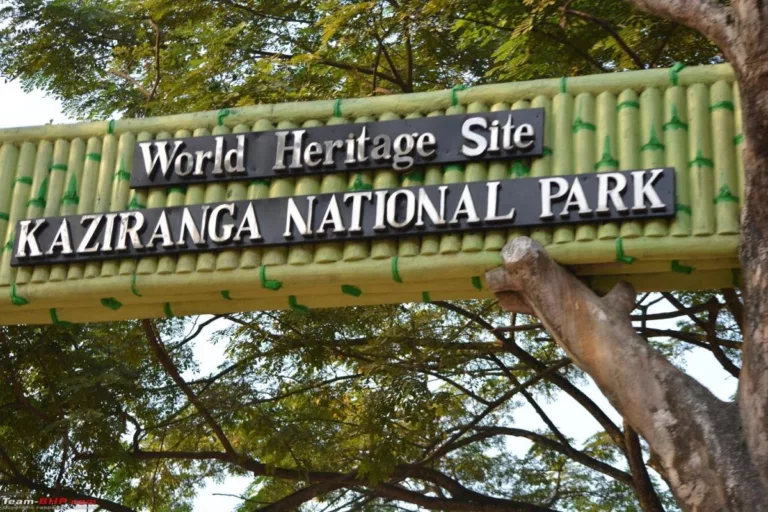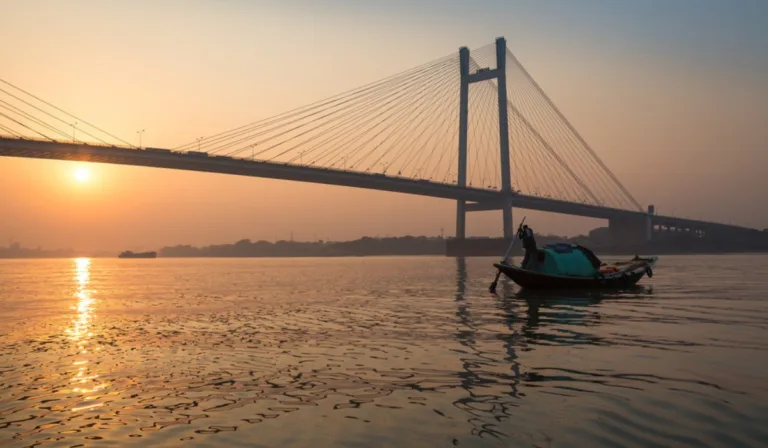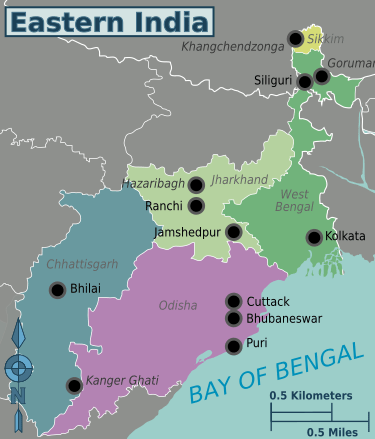Tourist Places In Baku
Top Tourist Places To Visit in Baku
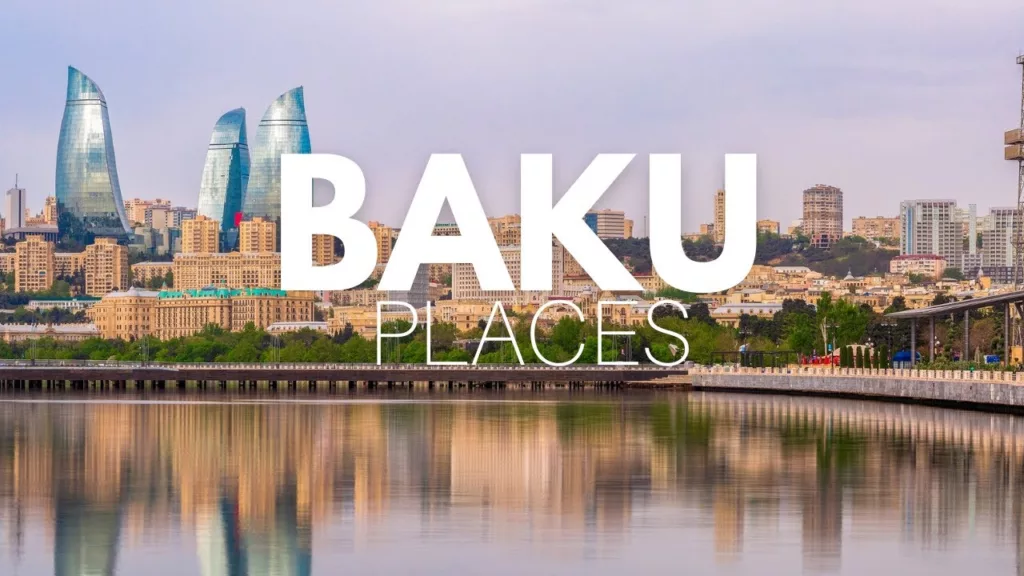
If you are planning to visit Azerbaijan, you should definitely know the top tourist places to visit in Baku. BBaku, the capital city of Azerbaijan, is a vibrant and rapidly developing destination with a rich history, stunning architecture, and a unique blend of Eastern and Western influences. Here are some of the top tourist places to visit in Baku
1. Baku Boulevard
Baku Boulevard (also known as National Park) is a promenade established in 1909 which runs parallel to Baku‘s seafront. It is the second-largest in Europe after the park located in the Paris alongside Seine River. The park is very popular among tourists as well as locals of Baku to walk and enjoy the beauties of the city and sea. Its history goes back more than 100 years, to a time when Baku oil barons built their mansions along the Caspian shore and when the seafront was artificially built up inch by inch.
2. The Palace of the Shirvanshahs
The Palace of the Shirvanshahs is a 15th-century palace built by the Shirvanshahs and described by UNESCO as “one of the pearls of Azerbaijan’s architecture”. It is located in the Inner City of Baku, Azerbaijan, and, together with the Maiden Tower, forms an ensemble of historic monuments inscribed under the UNESCO World Heritage List of Historical Monuments. The complex contains the main building of the palace, Divanhane, the burial-vaults, the shah’s mosque with a minaret, Seyid Yahya Bakuvi’s mausoleum (the so-called “mausoleum of the dervish”), south of the palace, a portal in the east, Murad’s gate, a reservoir and the remnants of a bathhouse.
3. Maiden Tower
The Maiden Tower is a 12th-century monument in the Old City, Baku, Azerbaijan. Along with the Shirvanshahs’ Palace, dated to the 15th century, it forms a group of historic monuments listed in 2001 under the UNESCO World Heritage List of Historical Monuments as cultural property, Category III. It is one of Azerbaijan’s most distinctive national emblems and is thus featured on Azeri currency notes and official letterheads.
4. Carpet Museum
Azerbaijan Carpet Museum displays Azerbaijani carpets and rug items of various weaving techniques and materials from various periods. It has the largest collection of Azerbaijani carpets in the world. If we say that, this museum is considered one of the most interesting tourist places in Baku, we wouldn’t be wrong. The museum moved to a new building on Baku‘s seafront park in 2014 from its former location on Neftchiler Avenue. The museum has become a research-training and cultural-educational center where many events, such as exhibitions, international symposiums, and conferences, are held. During its 50 years of existence, the museum has organized more than 30 exhibitions in different countries throughout the world.
5. Little Venice
Little Venice is one of the most beautiful sections of the Seaside National Park in Baku. This small town within the city, reminiscent of Italy’s Venice, adds a special beauty to the capital of Azerbaijan with its stunning canals and architecture. Little Venice was constructed as part of the Baku Boulevard in the 1960s and has become a favorite holiday destination for Baku citizens and guests of the city.
4. Nizami Str
Nizami Street is a large pedestrian and shopping street in downtown Baku, Azerbaijan, named after classical poet Nizami Ganjavi. The street’s history could be traced back to Baku’s town-planning project of 1864. The street runs through the city’s downtown from west to east. It begins from Abdulla Shaiq Street, in the mountainous part of the city, and ends at a railroad bed on Sabit Orujov Street, near a monument to Shah Ismail Khatai in “Black City”. The total length of the street is 3,538 m.
6. Flame Towers
Flame Towers is a trio of skyscrapers in Baku, Azerbaijan, the height of the tallest tower is 182 m (597 ft). Towers representing flames symbolize fire. The Flame Towers are completely covered with the LED screens that display the movement of a fire visible from the farthest points of the city. The light show transitions from giant flames, the colors of the Azeri flag, a figure waving a flag, and giant tanks of water being filled. Transition times are approximately 2 minutes.
7. Highland Park (Martyrs’ Lane)
Baku’s Highland Park is the highest point in the Azerbaijani capital, opening a panoramic view of the city and its bay. The city’s residents and visitors often come here to see a bird’s eye view of Baku and just have a walk. The Upland Park can be reached by funicular in 7-8 minutes from the boulevard, by climbing up the endless stone stairs or just by car.
8. Heydar Aliyev Center
Heydar Aliyev Center is the spectacular work of Zaha Hadid which is built in 2012 and covers 57,500 m2 area. Some facts about the building:
- The recorded cost of the center is 250 mln $.
- Architects did 2.5 years of research in order to just find out how to build this amazing building.
- The material that was used to make it outside of the center invented by the architects because there was no known material in order to make such a curved building.
9. Gobustan Rocks
Gobustan State Reserve located west of the settlement of Gobustan, about 40 miles southwest of the center of Baku was established in 1966 when the region was declared as a national historical landmark of Azerbaijan in an attempt to preserve the ancient carvings, mud volcanoes, and gas-stones in the region. Gobustan State Reserve is very rich in archeological monuments, the reserve has more than 6,000 rock carvings, which depict primitive people, animals, battle-pieces, ritual dances, bullfights, boats with armed oarsmen, warriors with lances in their hands, camel caravans, pictures of sun and stars, on the average dating back to 5,000-20,000 years. Gobustan Rocks is considered one of the favorite places that tourists visit in Baku.
10. Mud Volcanoes
Home to nearly a third of the world’s mud volcanoes, Azerbaijan features a messy, bubbling, and sometimes explosive landscape. Mud volcanoes are closely associated with hydrocarbon and petrochemical stores underground, hence the gas trying to escape to the surface. A few of these gas leaks are constantly on fire, shooting small perpetual flames into the air and some believe that these perpetual flames are strongly connected to the appearance of the Zoroastrian religion in Azerbaijan some 2,000 years ago. This place especially is interesting for families who travel with their kids.
11. Bibi-Heybat Mosque
The Bibi-Heybat is a historical mosque in Baku, Azerbaijan. The existing structure, built in the 1990s, is a recreation of the mosque with the same name built in the 13th century by Shirvanshah Farrukhzad II Ibn Ahsitan II, which was completely destroyed by the Bolsheviks in 1936. Today the Bibi-Heybat Mosque is the spiritual center for the Muslims of the region and one of the major monuments of Islamic architecture in Azerbaijan.
12. Heydar Mosque
One of the grand architectural projects of recent times is the Mosque of Heydar Aliyev with four minarets, which was built in Baku in the architectural style of Shirvan-Absheron. This mosque is not the largest construction cult-religious architecture only in Azerbaijan, at the same time in the entire South Caucasus. The area of Heydar Aliyev Mosque is 12,000 square meters, the height of the four minarets is 95 meters. The large and small domes of the mosque are 55 and 33 meters high, respectively. The facade of the mosque is made of a special stone style of Shirvanshah architecture and interior decoration is made of marble and wood.
13. Fire Temple (Ateshgah)
The Baku Ateshgah often called the “Fire Temple of Baku” is a castle-like religious temple in Surakhani town, a suburb in Baku, Azerbaijan.
Based on Persian inscriptions, the temple was used as a Hindu, Sikh, and Zoroastrian place of worship. “Atash” is the Persian word for fire. The pentagonal complex, which has a courtyard surrounded by cells for monks and a tetrapillar-altar in the middle, was built during the 17th and 18th centuries. It was abandoned in the late 19th century, probably due to the dwindling of the Indian population in the area. The natural eternal flame went out in 1969, after nearly a century of exploitation of petroleum and gas in the area, but is now lit by gas piped from the nearby city. Fire temple especially is considered one of the top places to visit in Baku among Indian travelers.
14. Burning Hill (Yanardag)
Burning Hill is a natural gas fire that blazes continuously on a hillside on the Absheron Peninsula on the Caspian Sea near Baku. Unlike mud volcanoes, the Yanar Dag flame burns fairly steadily, as it involves a steady seep of gas from the subsurface.
15. The World’s First Industrially Drilled Oil Well
For the first time in history, the industrial production of oil started in Baku. This event was known in Azerbaijan but documentary evidence has been found recently in the archives. As a result, the world’s first oil well of 21m deep and drilled in 1846 in the village of Bibi-heybat near Baku was found and restored, which became an open-air museum.

